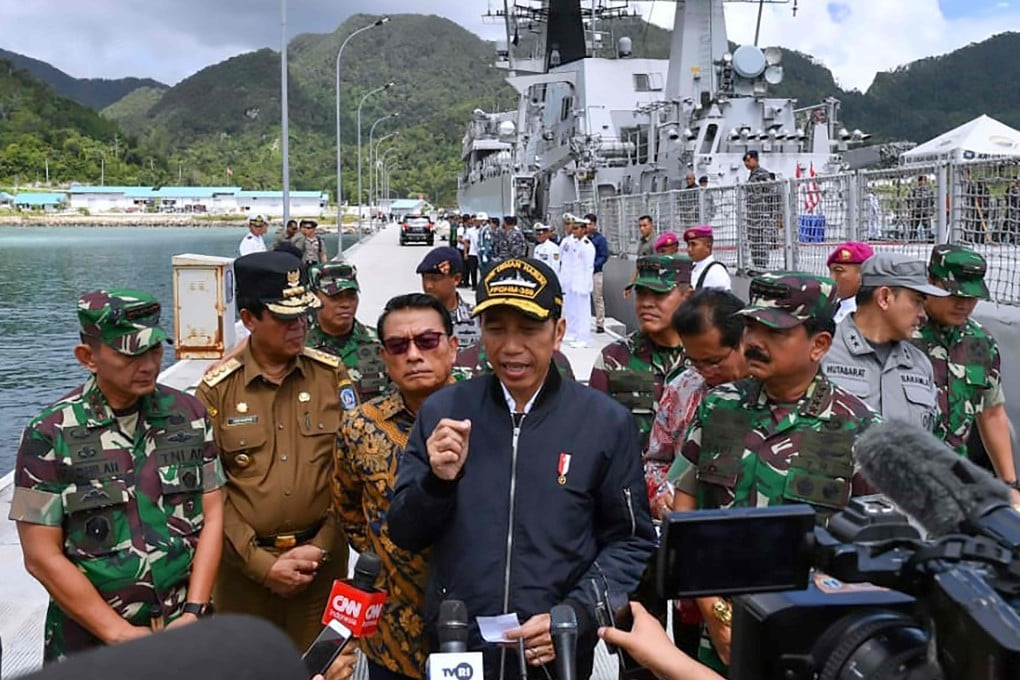Advertisement
South China Sea: Indonesia pledges to develop resource-rich Natuna Islands to secure maritime borders, boost unity
- Indonesia sees developing the 27 islands as crucial to protecting its maritime borders in an area frequently visited by foreign vessels from China and Vietnam
- Jakarta has sent two ministers to the islands to reassure their 81,000 residents and other Indonesian citizens that it is taking the matter seriously, despite a lack of action on the diplomatic front
4-MIN READ4-MIN
2

Indonesia is to boost development in the resource-rich Natuna Islands in a bid to underline its sovereignty following visits by Chinese vessels to nearby waters.
Jakarta reiterated its commitment to the archipelago of 27 islands, which lie within Indonesia’s exclusive economic zone in the South China Sea, on Tuesday during a two-day visit by Coordinating Minister for Political, Legal and Security Affairs Mahfud MD and Minister of Home Affairs Tito Karnavian.
Indonesia views itself as a non-claimant state in the South China Sea territorial disputes and the Natuna Islands themselves lie beyond the nine-dash line Beijing uses to claim more than 90 per cent of the sea. However, some of the waters to the north and northeast of the islands – in an area of Indonesia’s EEZ that Jakarta refers to as the North Natuna Sea – do fall within Beijing’s nine-dash line and are frequently visited by foreign vessels from both China and Vietnam.
Advertisement
Mahfud said developing the outermost islands was crucial to Indonesia’s efforts to secure its borders.
“President Joko Widodo said that no matter how many weapons, soldiers and police are available in the Natunas, the country will not effectively guard itself against enemies if there’s no socioeconomic development,” Mahfud said, reported the news website Detik.
Advertisement
“That is why the president has instructed us not only to continue to patrol the waters but to develop the economy of the Natunas. If the economy in the Natunas is alive, then we can maintain the country’s unity.”
Advertisement
Select Voice
Select Speed
1.00x